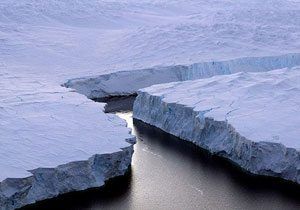Explore volcanoes with the new LEGO® City range!
Brace yourself for tons of explosive fun with the awesome new LEGO® City Volcano Explorers range!
Brace yourself for tons of explosive fun with the awesome new LEGO® City Volcano Explorers range!
Plus, we catch up with an awesome real-life volcanologist!
Meet our real-life lava man!
Andrés Ruzo is a volcanologist, National Geographic Explorer and of course, a huge LEGO® fan – cool! We caught up with him to find out more about his favourite topic, mighty mountains!
NG KiDS: Hi Andrés, what’s the biggest volcano on Earth?
Andrés: The Tamu Massif, a huge extinct volcano, is considered the most massive single volcano on Earth. Found deep in the northwestern Pacific Ocean,Tamu’s summit lies almost 2km below the ocean’s surface! The largest active volcano is Mauna Loa in Hawaii. From its base to its summit, Mauna Loa is taller than Mount Everest!
Andrés takes his LEGO® with him wherever he goes, even on his volcanic explorations!
Image: Andrés Ruzo
Wow! Can a dormant volcano come back to life?
Absolutely! A dormant volcano is still an active volcano which can roar back to life with the next eruption. Humans and volcanoes operate on very different time-scales – if a volcano has erupted at least once in the past 10,000 years it’s considered active.
Andrés job takes him to some of the wildest places on the planet!
Cool! Are there any active volcanoes in the UK and Ireland?
There are no active volcanoes in the UK. But numerous extinct volcanoes dot the landscape, giving the countryside stunning geological features. Giant’s Causeway (Northern Ireland), The Great Face (Staffa, Scotland) and Castle Rock (Edinburgh, Scotland) are a few iconic landforms that tell of the UK and Ireland’s volcanic past.
 Image: Andrés Ruzo
Image: Andrés Ruzo
What’s your favourite volcano?
The Casita Volcano near Chinandega, Nicaragua, in Central America, is my favourite. My family has grown coffee on its slopes for generations, and I used to spend my summers on the family farm exploring the volcano with my cousins. Playing in the fumarole fields ignited my curiosity about the power of Earth’s heat, and it ultimately awoke my passion for Earth sciences.
 Image: Andrés Ruzo
Image: Andrés Ruzo
If you jumped into a volcano would you travel all the way to the centre of the Earth?
Jumping into a volcano would be a terrible idea – you’d either belly-flop right into a lava lake or you’d land on sharp volcanic rocks! Inside the Earth, temperatures and pressures quickly become overwhelming – in fact the temperatures between Earth’s inner and outer core are thought to be around 6,000ºC, which is as hot as the surface of the Sun! Beyond this, there is still a lot of molten rock between Earth’s surface and its core. So definitely don’t trust the old ideas of volcanoes serving as open passageways to the centre of the Earth – it might get you into trouble!
 Image: Andrés Ruzo
Image: Andrés Ruzo
Haha, good advice there we think, thanks Andrés!
Did you know…?
The largest known volcano in our solar system, Olympus Mons, is on Mars.
It’s 25km high and is large enough to cover an area the size of France!
5 things every volcanologist needs
Studying volcanoes is a pretty important job – not to mention dangerous! By measuring a volcano’s activity, we can learn how and why they erupt and how to predict eruptions in the future – protecting the lives of people who live nearby.
Making these investigations requires some pretty serious pieces of kit, not to mention nerves of steel! Check out some of the essential things a volcanologist needs in their inventory…
1. Seismometer
This intricate instrument can measure the motions made by earthquakes and volcanic eruptions, known as seismic waves. From this, scientists can locate and measure the size of the source – cool!
2. Rocky ride
Volcanoes expand over areas of towering peaks, vast valleys and dense woodland and are therefore not the easiest places to get to! You’ll need a fully kitted-out explorer’s truck to get you from A to B!
3. Pick axe
What really excites volcanologists? Rocks! Studying samples of rock found around volcanoes can paint a picture of its history. Igneous rocks (formed by cooling magma deep inside the earth) often have giant crystals hidden inside!
4. Thermal camera
You may have guessed it, but volcanoes are hot, hot, hot! Thermal imaging cameras (which allow you to see heat sources) allow volcanologists to see and measure the volcano’s heat from a safe distance, brilliant!
5. Laboratory
All that research requires some serious science to break it all down. Scientists use high-tech labs to study volcano samples, measurements and readings which help us learn more about them!
Do you know your volcanic terms?
Dormant volcano – an active volcano that is ‘sleeping’ and is expected to erupt again at some time in the future.
Extinct volcano – an inactive volcano that’s never expected to erupt again.
Fumarole – a vent in the Earth’s surface through which volcanic gasses escape.
Psst! Check out our super volcano facts, here!
For real City fun and games visit LEGO.com/City.
More Like General Geography

Dare To Explore with Paul Rose!

Meet Extraordinary Explorer Alex Van Bibber!

What is climate change?

















LEAVE A COMMENT
THANK YOU
Your comment will be checked and approved shortly.
WELL DONE,
YOUR COMMENT
HAS BEEN ADDED!
COMMENTS
LEGO MOVE!!!!!!!!!
LEGO!
every thing is awsome
AMAZING
The fact that there were lego men was funny :D
Now I know lots more about volcanoes
cool and great at the same time
AMAZE BALLS
cool!!!
awesome legos and facts
what happens if two volcanic eruption happens at the same place?
CUSTOMIZE YOUR AVATAR